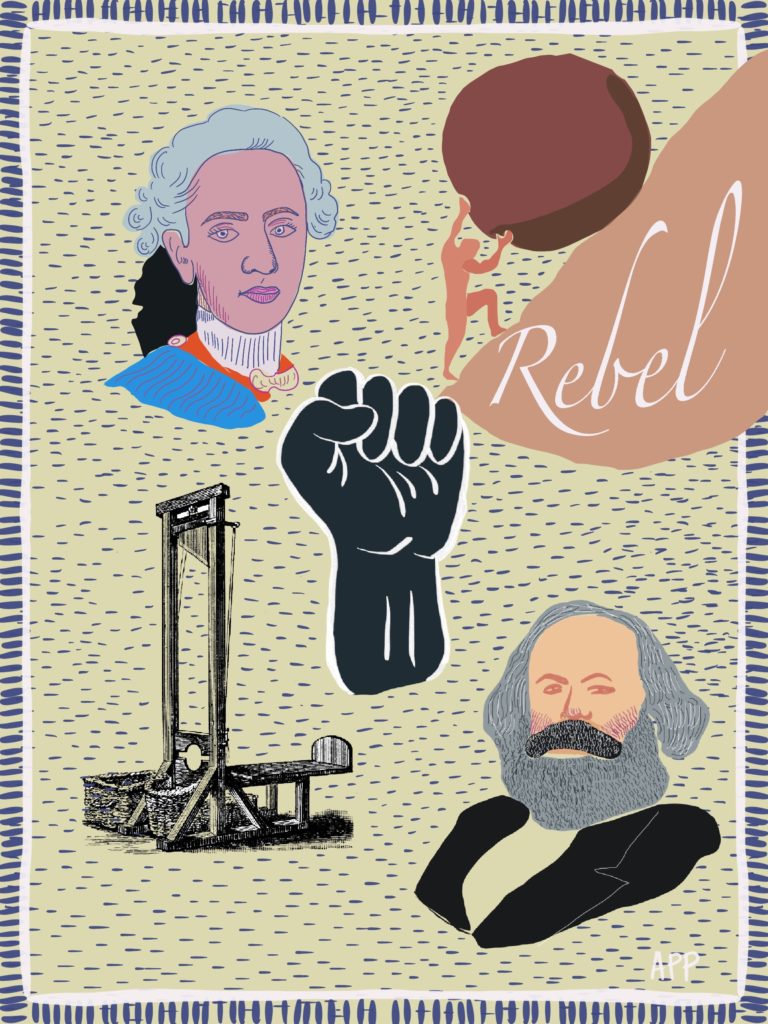
The Rebel by Albert Camus
My rating: 4 of 5 stars
I had to chew, digest, and then chew-the-cud to understand the depth of this book.
Camus establishes the difference between revolution and a rebel by pointing out that in a revolution, the actions are usually planned out beforehand. A rebel acts to defend himself from the perceived injustice.
He goes on to explain that the French Revolution turned so violent after the killing of Louis the 16th that tyranny existed far longer in the country. This tyranny leads to fear and a condition similar to totalitarianism in belief. This killing of the kings in the 18th century marked the period of “Regicide”. Together with the killing of nobility, the foundation and the claim of noble lineage were cut off. Witnessing the king die like a peasant changed the perception of revolutionaries. Suddenly people found a paradigm shift in their beliefs.
19th century Europe, being ravaged with wars was punctuated with nihilism. After the killing of kings, it was now the turn of Gods. People found it difficult to believe in a God who was blind to so many sufferings. Moreover, religious history was smeared with blood. This process of killing the gods is named “Deicide”.
With no kings and gods to bolster the belief of the people, history became a ‘meaningful’ candidate for totalitarianism. Camus passionately argues that all revolutions based on these beliefs ended up embracing totality. These revolutions imprisoned or tortured a lot of people for their own better tomorrow. Therefore, Camus argues that moderation in terms of being a revolutionary is called forth.
His harsh criticism of Marxism was greeted with contempt from his contemporaries. He points out that Marx believes in Darwin’s evolutionary science but he fails to justify many scientific discoveries thereafter. He accuses Marx of cherrypicking causation to validate his ideas. Camus questions the difference between Marxist ideas and religious faith as both are based on unprovable shaky foundations.
An absurd man is aware of the meaninglessness of the world; he, despite knowing the non-existent meaning, lives to find happiness. This living itself is rebellion. Camus calls this act of living, an art form.
This book is an extension of The Myth of Sisyphus. After acknowledging there is no meaning in life, most of us do not know which direction to take. Nihilism justified violence and genocide, existentialism had a negative tinge. So, for me, having a more optimistic point of view helped me to understand life as of now.
Camus’s conclusions are quite simple. However, his logical arguments which are clear and concise leads us through examples to believe why we should believe that conclusion.
For all non-French people out there, it is still worth reading.
View all my reviews